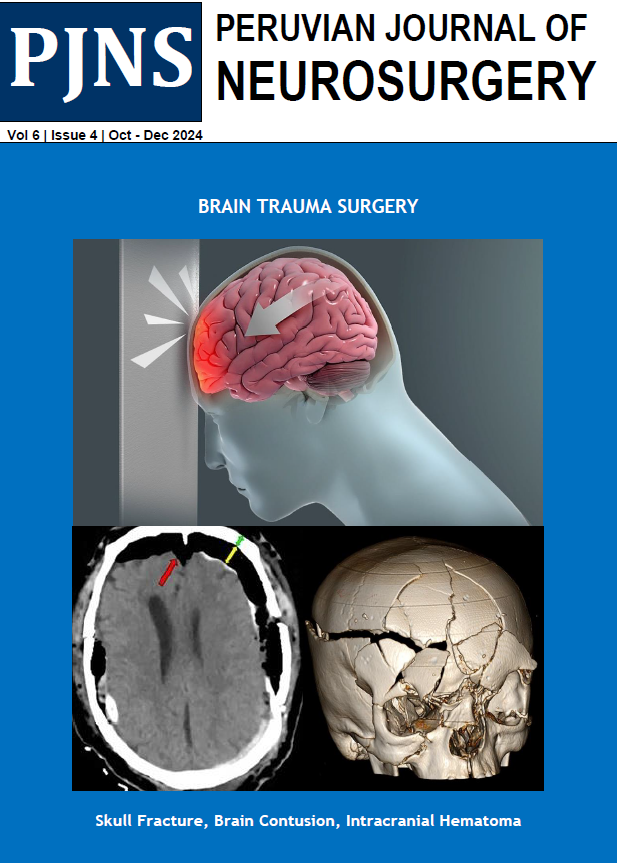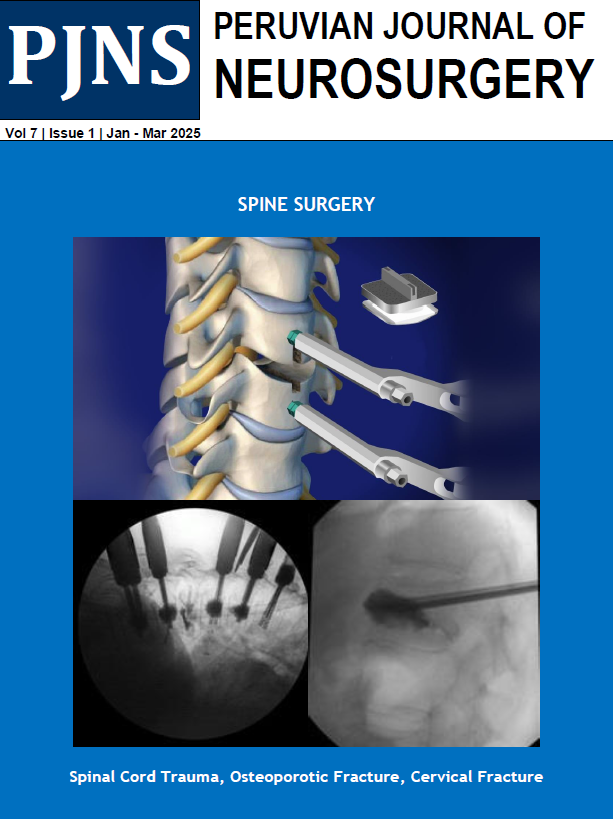Usted está aquí
Peruvian Journal of Neurosurgery
Cognitive Impairment of Cortical Cognitive Superior Functions in Brain Trauma
ABSTRACT
The presence of neuropsychological alterations in the mental status of patients with brain traumatic injury (BTI). Are characteristic of the disease and are considered as focal symptoms or isolated deficits. In frequency in the BTI. There is a usual way of presenting cognitive impairment. The alterations of the prefrontal cortex and the irregularities of the superior order of the behavior are one of the first psychopathological manifestations of BTI. From the neuropsychological point of view, frontal lobe functions, given their high level of cortical integration and control of other cognitive functions, are difficult to evaluate directly. Some of the earliest evidence comes from the well-known case of Phineas Gage (Harlow 1848-1868), who survived the accident he suffered living until he was 38 years old with the iron rod that pierced the front of his brain and went through the Head, had no obvious neurological deficits, no sensory or motor loss, and was able to speak coherently even after the accident. As the acute effects of the injury diminished, his behavior changed completely, he showed irresponsible, disorderly. The regulation of his behavior was affected by his accident.



